SUMMARY
This is AI generated summarization, which may have errors. For context, always refer to the full article.

MANILA, Philippines – Butch Fortuna couldn’t remember if he ever once cried while watching a movie, but the film Katips proved to be too much for a father whose son has been missing since 2010.
“Iyak kami nang iyak mag-asawa noong napanood namin iyon kasi naalala namin ang anak namin (My wife and I kept on crying so hard while watching because we remembered our son),” he told Rappler in an interview.
The film about the struggles and disappearances of youth activists who stood against authorities during Martial Law reminded him of his son, Daryl, who was never afraid to question those in power.
Daryl was not an activist during the military rule of the dictator Ferdinand Marcos. He was then a 23-year-old activist who decided to stay longer in Zambales after doing his undergraduate thesis on indigenous peoples’ rights in the province.
He was abducted on March 9, 2010 in Masinloc, Zambales by what witnesses tagged as members of the military. He was never seen again.
The road Daryl took
Daryl was a joy to have as a son, according to Butch. He was quiet, kind, and never really gave them headaches.
He was the eldest of three children and strove to be a model to his younger siblings. He excelled academically, taking home medals and other honors from elementary to college.
Over the years, Butch often tried to look back and recall if there were instances that could’ve given them a hint of what Daryl’s life would be like in the future.
“Magaling na bata pero tahimik lang, kaya nagtaka talaga ako na pinili niya iyong landas na ito, pero naisip ko, baka iyong pagtulong talaga ang gusto niya,” he told Rappler.
(He was an excellent child but a quiet one, so I’m really puzzled why he chose this route, but maybe helping other people was really what he wanted to do in life.)
Daryl went on to study history at the Polytechnic University of the Philippines. During his senior year, he decided to do a thesis on indigenous peoples in Zambales, requiring him to conduct fieldwork beyond the comforts of Metro Manila.
It proved to be an enlightening experience for Daryl, who eventually decided to remain and work with the community whose ancestral property has been threatened by private businesses as well as relentless counter-insurgency in the region.
Butch wanted him home. He, after all, had a degree to complete and a family to come home to.
“Pinuntahan at sinundo namin siya mula doon, sumama naman siya pauwi sa amin, pero umalis din agad (He came with us when we went and fetched him, but he went back immediately),” Butch recalled.
That last trip to their home in Quezon City was the last time the Fortuna family was complete.
The day Daryl was abducted
Daryl disappeared on March 9, 2010. According to reports by human rights organizations, he and two others were abducted by unidentified men during a power outage in Masinloc, Zambales.
At that time, Daryl was involved in community organizing to address issues faced by residents, including the impact of mining activities on the environment. Witnesses allegedly recalled seeing the missing activists in military camps, but failed to come forward fearing reprisal from state agents who patrol their communities.
But the possible threat did not faze Daryl’s parents who immediately traveled to Zambales to find their son. They searched every military camp, police station, hospital, and even detention facility, hoping to find any trace of Daryl.
“Hinalughog namin buong Zambales hanggang makaabot kami sa Camp Magsaysay sa Nueva Ecija para lang hanapin siya,” he said. “Wala kaming pinalampas na lugar pero hindi namin siya nakita talaga,” Butch added.
(We looked all over Zambales and even reached Camp Magsaysay in Nueva Ecija. We didn’t skip any place but we really couldn’t find him.)
The challenges were aplenty during their search. People who lived in the area where Daryl was abducted gave information, but refused to go on record when asked to be official witnesses for possible legal cases.
Then there’s the issue of where to find money to fund their search, which was solved with the assistance of the Families of Victims of Involuntary Disappearances (FIND).
“Ilang taon kaming pabalik-balik doon, kung sino-sinong kinakausap namin, pero walang nangyayari, kasi takot ang mga tao na baka raw sila ay balikan ng kung sinuman ang kumuha sa anak ko,” Butch said.
(We went back and forth there for years, we talked to a lot of people, but nothing happened. People were afraid that those who abducted my son would get back at them if they revealed more.)
There was also an incident when people claiming to be from the Department of Justice visited their house in Quezon City seeking more information about Daryl. Butch, already wary of what might happen, did not disclose anything but regrets not reporting the visit to authorities, or at least to their barangay officials.

Twelve years missing
It has been 12 years since Butch last saw his son, Daryl, who would have been 35 years old now.
His disappearance had tremendous effect on Butch who admitted to bursting into tears just thinking about what happened to his son.
“Araw-araw sa paggising ko, siya pa rin ang iniisip ko kasi napakahirap na walang closure talaga (He’s all I think about every waking moment because it’s so hard without closure),” he said.
Such is the situation of families of victims of enforced disappearances, or desaparecidos, throughout different administrations in the Philippines. Without any indication of what happened to their loved ones, families are left to suffer over the missing parts of their life.
FIND documented at least 2,066 victims of enforced disappearances from the Martial Law period to June 2022. Out of this number, 627 have surfaced alive, while 276 were found dead. At least 1,163 remain missing.
Daryl, meanwhile, is one of the 137 still missing from the administration of former president Gloria Macapagal Arroyo.
For Butch, justice would be seeing his son again after futile attempts to seek help from the government. They have been to Malacañang to ask assistance during the early years since Daryl’s disappearance.
“Araw-araw nakikita namin kung gaano kami hindi pansinin o tulungan ng gobyerno at naramdaman namin na ganyan sila kasi hindi sila biktima,” he said.
“Kung may ginawa ang anak ko na masama, kasuhan nila kasi gusto ko ipaglaban ang pagkatao niya, hindi ito na wala kaming kaalam-alam sa kung anong nangyari,” Butch added said.
(Every day we see how the government refused to help us and we feel that they’re like that because they are not the victims here. If my son did something wrong, then they should have filed a case. I want to fight for my son’s honor. Not like this that we are kept in the dark.)

Never stopped searching, waiting
Butch never stopped searching for Daryl, the quiet boy who often kept to himself at home. He tries to look for his familiar face in every crowd. But Butch refuses to be eaten alive by grief. Instead, he chooses to use it to help other families facing the same predicament.
For years now, Butch has been involved with FIND as one of its members tasked to document other cases of enforced disappearances. This work has brought him to several provinces in the Philippines where he spoke and consoled with parents similarly distraught over their missing loved ones.
“Nagkakaroon kami ng parang koneksiyon sa aming pinagdadaanan kasi naisasabi ko rin iyong mga problema ko dahil sa nangyari sa anak ko,” he said.
(We have this connection over what we’re going through because I’m also usually able to say the problems I have because of what happened to my son.)
The grief that bonded them has become a vessel of hope, too.
“Ang mensahe ko palagi sa kanila, lakasan ang loob, maging matatag, at maghintay,” Butch said. “Huwag mawalan ng pag-asa kasi doon tayo huhugot ng lakas kasi balang-araw, kahit na malayong mangyari, maabot din natin ang hustisya,” he continued.
(I always tell them to be courageous, firm, and to wait. Don’t lose hope because that is where you draw strength. No matter how impossible it might seem, we’ll get justice one way or another.)
In the end, it’s what one can really do for another family left behind with more unanswered questions about the fate of their parent, child, sibling, or partner.
Butch, even if it will take decades, will never stop waiting for his son Daryl. – Rappler.com
Add a comment
How does this make you feel?
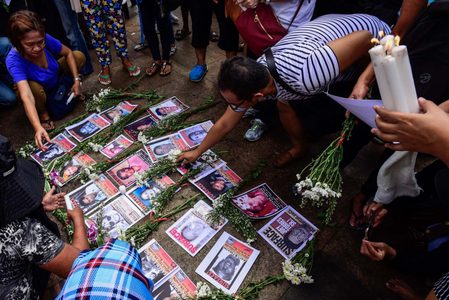

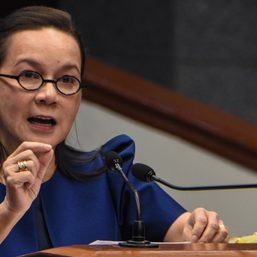
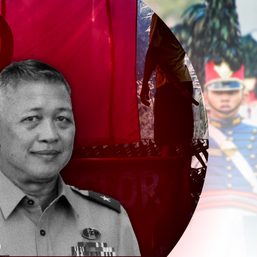
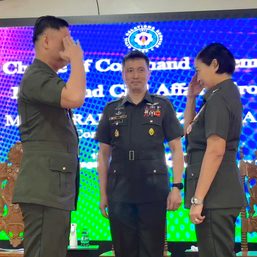



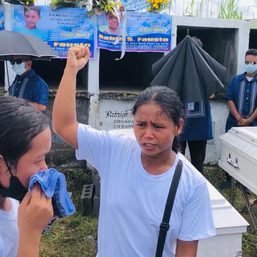







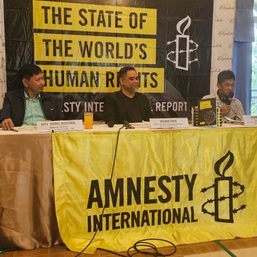
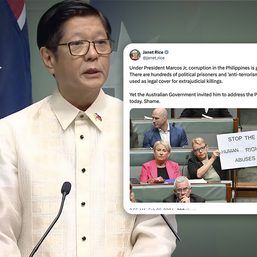
![[OPINION] In the Philippines, the fight for the climate is a fight against state violence](https://www.rappler.com/tachyon/2024/02/imho-contexualizing-state-violence.jpg?resize=257%2C257&crop=265px%2C0px%2C720px%2C720px)
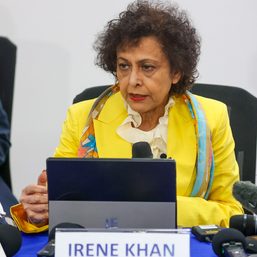
There are no comments yet. Add your comment to start the conversation.